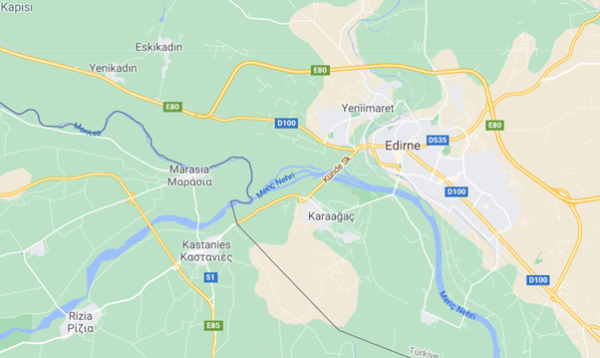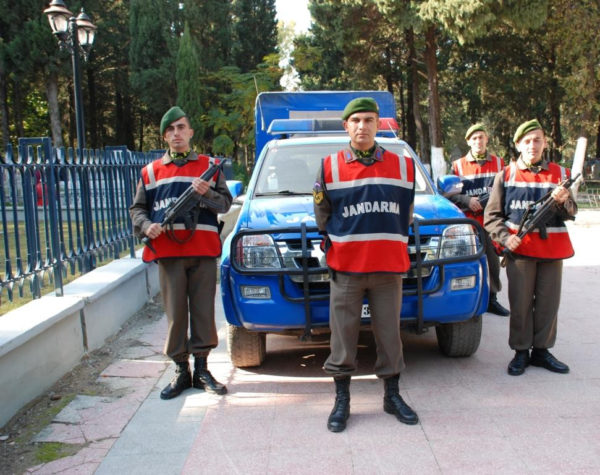They Died Like Insects
| 13.12.2020 | Greek-Turkish border, near Edirne | Anonymous Partner | 41.6771297, 26.5557145 | Greece | Turkey | unknown | no | no | no | no | no | 33 - 33 | #N/A | Iraq | Unknown | beating (with batons/hands/other) | Unknown |
The respondent is a 33-year-old Iraqi man. On the 13th of December 2020, he presented himself to the Border Violence Monitoring Network (BVMN) to disclose his numerous experiences of pushbacks. He arrived on crutches, with extensive injuries to his feet, and had evidently been living in abysmal conditions for some time. In January 2016, the respondent travelled from Iraq to Germany. He was accompanied by his wife and young son, but left them in Turkey to continue his journey alone. Shortly after arriving in Germany, the respondent was informed by his wife that their son had fallen seriously ill with a lung condition. In the words of the respondent, the situation of his family in Turkey was “so bad.”
“I was trying to tell them [my family] that I am going to do a reunification, but it was so hard to do this.”Over the next year and a half, the respondent received asylum status in Germany and began applying for family reunification, so that he could bring his wife and son to the country. This, however, was unsuccessful. Worrying increasingly for his son’s health, the respondent decided to pay a smuggler to bring his family to Greece, where he hoped to return with them to Germany. In approximately April or May 2017, he flew from Dusseldorf to Thessaloniki. His plan was to go to a village close to the Greek-Turkish border and wait for his family there. Before departing, the respondent left the documentation that validated his asylum status with a friend in Thessaloniki. He explained: “I heard lots of stuff about the Greek police, they destroy a lot of documents and papers [of] the people who come from another country … so I didn’t bring it with me.” This belief corresponds to fact: numerous testimonies collated by the BVMN evidence Greek authorities systematically destroying the documentation of people-on-the-move (POM). On an undetermined date, the respondent arrived to “a village” at the Greek-Turkish border. He could not recall its name, however stated that the village was “in front of Erdine [Turkey].” Based on this description, the location was presumably Marasia or Kastananies. [caption id="attachment_16665" align="aligncenter" width="560"]
 The location where the respondent planned to meet his family[/caption]
That evening the respondent went to a “forest” neighbouring the village where he had arranged to meet his family. Here, he encountered one woman and three other men, all Syrian. Their purpose for being at the border was unclear and they did not previously know the respondent.
While the group waited, they were approached by four Greek police officers dressed in “blue uniforms”. The respondent labelled them “commandos”. They asked the group their nationality and ordered them to produce their documents. Having stored his in Thessaloniki, the respondent was unable to meet their request, nor could he convince the officers of his status, despite producing photographic evidence.
The location where the respondent planned to meet his family[/caption]
That evening the respondent went to a “forest” neighbouring the village where he had arranged to meet his family. Here, he encountered one woman and three other men, all Syrian. Their purpose for being at the border was unclear and they did not previously know the respondent.
While the group waited, they were approached by four Greek police officers dressed in “blue uniforms”. The respondent labelled them “commandos”. They asked the group their nationality and ordered them to produce their documents. Having stored his in Thessaloniki, the respondent was unable to meet their request, nor could he convince the officers of his status, despite producing photographic evidence.
“It was really bad because when they catch us, they started directly hitting us.”With all of the group failing to produce documentation, the officers proceeded to beat the men with batons. Several days after the assault the respondent reported that his body “still hurt”. All their money and mobile phones were either seized or destroyed by the officers. The officers then marched the group for over an hour and a half along the Maritsa River. During the journey, the respondent detailed that:
“they [the police] were always checking us, making sure that no one was trying to run away, and they were shouting at us go go go. Every time someone talked, they shouted at him shut up.”They were brought to a point on the riverbank where there was a “small plastic boat”. Although seaworthy, the respondent’s observation that it was a rowing boat is illuminating. Contrasted to the motorised rigid inflatable boats – often manned by third-country nationals – used by Greek border forces today, it demonstrates how the scope and scale of pushbacks in this region have intensified. Once loaded into the vessel, the officers drew their guns and ordered the group to row. “If you come back here we're going to shoot you”, they threatened. Shortly after disembarking on the Turkish side of the border, the group was apprehended by 10 Jandarma (Gendarmerie). These are a service branch of Turkey’s Ministry of Interior responsible for maintaining public order. They were given water and then escorted to a nearby “mini bus”, which transported the group directly to Aydın Prison in Izmir. [caption id="attachment_16666" align="aligncenter" width="500"]
 Turkish Jandarma displaying their uniforms[/caption]
Turkish Jandarma displaying their uniforms[/caption]
“They didn’t speak to us."A 850 person detention facility specifically for POM, Aydın has come under fire for serious human rights violations. Amongst other things, these include sexual harassment and rape, the torture of children between 11 and 18 and that prison management arms children with sharp objects and encourages them to form gangs. At Aydın, the respondent was placed inside an individual cell with four other inmates. When asked if he recalled anything about them, the respondent replied that “psychologically, I was tired and my brain was so tough, I didn’t even ask them where they were from.” What happened to the other members of the group is unknown. During his eight-day detention, the respondent witnessed Turkish authorities forcing a Syrian man to sign paperwork.
“They were pressuring him to sign a paper, [which] meant deportation. Syria is not a safe country, he didn’t want to go back there, and when he didn’t want to sign … they beat him.”The respondent himself was compelled to sign documents which, he believed, constituted a vow not to attempt to enter Greece again. An Arabic translator was present. Following his release, the respondent traveled to his brother's house in Sakarya, Turkey where his wife and son had been staying in the interim. Having not seen them for nearly two years, he was troubled to discover that his son’s medical condition had rapidly deteriorated and he now needed urgent medical assistance.
“My child was really sick … In Turkey, you have to pay [for] the hospitals to treat your family, there is nothing for free, especially the medical stuff, and I didn’t have any money”.Faced with this situation, the respondent sought employment at a local garment factory. His hope was to raise enough funds to treat his son and, eventually, return to Thessaloniki and collect his German asylum status. Yet the conditions he faced inside the factory were deplorable. As the respondent explained, “the treatment in the factories is not good, they pay half price, they are not nice to us.” The respondent proceeded to depict two more pushbacks that he had endured. One of which had occurred in the past week and was responsible for the injuries he presented himself to the BVMN with. “I tried two times [to cross the Greek-Turkish border]”, the respondent continued, “they beat me a lot, from both sides … the Greek police hit me, [and] in Turkey as well … after these two times, I succeeded to reach Greece.” [At this point, the respondent bowed his head and began to sob. The interview was stopped]. [While he recomposed himself, the respondent stated “they died like insects.” He was asked what was meant by this and he began retelling an account of POM who were abandoned by Greek border forces on an island in the Maritsa River. The respondent was asked if recording could recommence and, with his consent, the interview was restarted].
“There is a really important thing. It happened one month ago [November 2020] and [I] knew these people. There is an island inside the [Maritsa] River, a small Island … they [the Greeks] put four people on this island, they drove by dingy, in the river, and they put them [on] this island. They didn’t have anything to go back to Greece, or to go to Turkey”.The respondent alleged that these POM died on the island. What the respondent described here has been documented by the BVMN before. In a testimony collected in November 2020, a small group of POM were reportedly left stranded on a small island in the Maritsa River for two days – without water or food – after Greek and Turkish forces repeatedly pushed them back and forth the Maritsa. According to this respondent, “some guys were taken by the river when they tried to get back.” Video evidence of this event can be found here. When asked how he knew about this, the respondent answered that he “saw four people, [who] told him that they swam from the island to the Greek side [of the border].” “I didn't believe them at first”, he continued, “but when [I] arrived here [I] heard other stories from one Syrian family.”
“This stuff happens all the time.”
